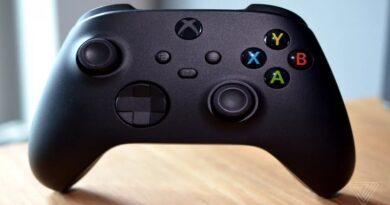Sarcos Subsidiary RE2, LLC Achieves Technical Milestone with Dexterous Underwater Robotic Gripper for U.S. Navy
RE2, LLC, a wholly owned subsidiary of Sarcos Technology and Robotics Corporation (“Sarcos”), today announced that it has achieved a significant technical milestone with its Strong Tactile maritime hand for Feeling, Inspecting, Sensing and Handling (STARFISH), an underwater end-of-arm tooling (EOAT) project being funded through the U.S Navy’s Office of Naval Research (ONR). STARFISH is an advanced gripper EOAT with tactile feedback that is being developed for mine countermeasures and explosive ordnance disposal (EOD) for the U.S. Navy. With this technical milestone, the company has successfully assembled and lab-tested a complete STARFISH gripper capable of grasping and holding a variety of different objects.
During lab testing, the STARFISH prototype used three tactile-sensing fingers to successfully achieve a variety of fine- and large-gripping skills, including squeezing a pair of tweezers and grasping larger objects. Each finger conforms to the shape it is grasping, enabling it to securely hold objects upon contact.
The Company is developing this technology with professors Dr. Veronica Santos, director of the Biomechatronics Laboratory at UCLA, and Dr. Jonathan Posner, professor of mechanical engineering and chemical engineering at the University of Washington. Dr. Posner’s team, in collaboration with Dr. Santos’ team, designed the multimodal tactile sensor skin that enables the grippers’ sensorized fingertips to feel normal and shear forces.
When visual feedback is limited, complementary senses such as touch play a critical role in completing dexterous tasks, this is true for humans as well as for robots remotely controlled by humans. Tactile sensation will enhance the teleoperation and semi-autonomous control of underwater robot hands for difficult manual tasks.” Dr. Veronica Santos, director of the Biomechatronics Laboratory at UCLA
STARFISH uses advanced touch sensors and next-generation haptic feedback to provide robot operators with the last link in terms of robotic perception capabilities the ability to ‘feel’ objects in the environment, this will enable EOD personnel to locate, sense, and interact with objects they both can and cannot visualize from a remote, safe distance.” Dr. Adam Brant, project manager, Sarcos
The gripper uses an advanced array of visual and underwater sensors to orient itself to its environment. It will operate in hazardous underwater environments that would typically damage end effectors, including turbidity, ocean swells, and other dynamic underwater conditions. Data collected from the hand’s interactions within the environment will be sent back to the operator control unit (OCU), allowing the operator to perform complex manipulation tasks from a remote location.
STARFISH significantly advances the capabilities of underwater robotics across a variety of military and commercial applications, Adding the STARFISH EOAT to our Sapien Sea Class robotic arms will provide robot operators with even greater mobility, visualization, and dexterity in precarious underwater environments.” Jorgen Pedersen, Chief Operating Officer, Sarcos
During the next phase of the project, the STARFISH grippers will be attached to Sapien Sea Class underwater arms, which will then be mounted on an underwater ROV and tested in a subsea environment.




